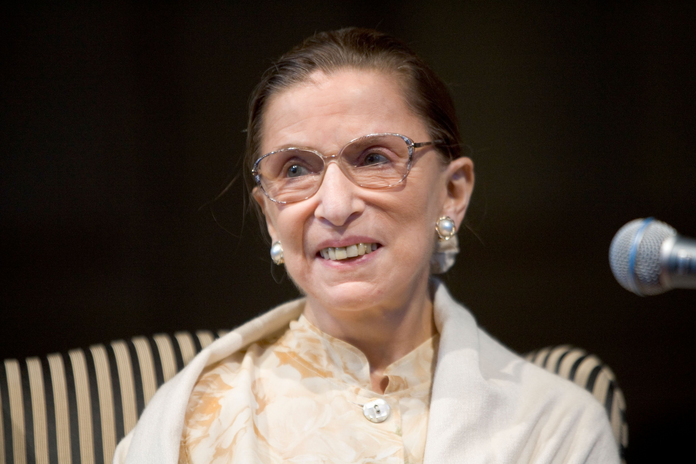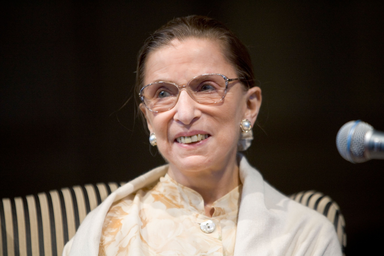At 87 years old, Supreme Court Justice Ruth Bader Ginsburg passed away due to complications from pancreatic cancer. Commonly known as a feminist icon, Justice Ginsburg dedicated her life’s work to advocating for gender equality and women’s rights.
Born in Brooklyn, New York in 1933, Ginsburg graduated top of her class from Cornell University in 1954. In 1956, she enrolled in Harvard Law School as one of only nine women, who were all later asked by the Dean why they were occupying seats that should have been filled by men. Ginsburg later transferred to Columbia Law School to complete her studies, graduated in 1959 and tied first in her class. Despite her impressive credentials, she realized many law firms did not want to hire her. In her own words, she once wrote, “In the fifties, the traditional law firms were just beginning to turn around on hiring Jews. But to be a woman, a Jew and a mother to boot – that combination was a bit too much.”
Eventually, Ginsburg became a professor at Rutgers Law School from 1963 to 1972. In 1970, she co-founded the Women’s Rights Law Reporter, the first American law journal that focused solely on women’s rights. From 1972 to 1980, Ginsburg became Columbia Law School’s first female tenured professor. Despite rightfully earning her position, her employers deemed a lower salary than her male counterparts was acceptable because she had a husband who provided a good income. In 1972, Ginsburg co-founded the Women’s Rights Project at the American Civil Liberties Union (ACLU). As the director, Ginsburg famously argued six gender discrimination cases before the Supreme Court – and won five. She was nominated to the Supreme Court by President Clinton in 1993.
As a first-generation American, a religious minority and a woman, Justice Ginsburg was no stranger to the countless challenges faced by individuals everywhere from various social norms. Instead of letting these barriers stop her, she channelled her frustration into defying expectations. Justice Ginsburg overcame the very discrimination that was in place to put her down and devoted her career to fighting for justice, equality and opportunity. As the second woman ever to serve, Justice Ginsburg served on the Supreme Court for nearly three decades. What she left behind was truly a legacy. She changed a country through her work and will continue to inspire the generations who follow her.
Justice Ginsburg did not just fight for women’s rights. She actively fought for the rights of Indigenous, LGBTQ+ and male communities. In her own words, “Women’s rights are an essential part of the overall human rights agenda, trained on the equal dignity and ability to live in freedom all people should enjoy.”
This is to honour her legacy and what she did for herself, for minority groups and us – women. This is how we will remember Justice Ruth Bader Ginsburg.

“Women belong in all places where decisions are being made. It shouldn’t be that women are the exception.”
References
Remembering Ruth Bader Ginsburg, a pioneer for women’s rights and larger-than-life figure
‘She was what America should be’: mourners bid farewell to Ruth Bader Ginsburg



